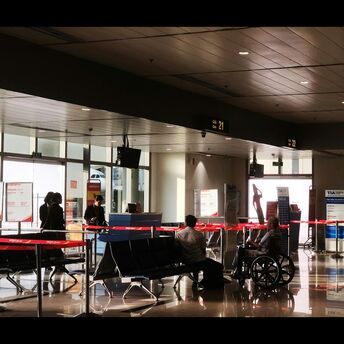Heavy Fog Disrupts Transport in Southern England

Large areas of fog had settled on southern parts of England, leading to disrupted travel during the early hours of Thursday with limited visibility and widespread disruption. Affected areas with visibility below 100 metres were issued with warnings by the Met Office, notably regions including Kent, Hampshire and Isle of Wight, East and West Sussex, Dorset, Devon. Fog is expected to lift by late morning, though this will not come without spoiling road and public transport journeys.
Although not all areas were affected equally, those experiencing dense fog reported difficult driving conditions, with transport operators cautioning about delays and potential schedule changes. Regional airports, ferry ports, and rail services were among the sectors impacted, with several early departures delayed due to safety concerns. Authorities urged travellers to stay informed through official transport updates and prepare for last-minute adjustments.
This weather development is especially relevant for travellers planning early departures or transfers. Fog also will make the visibility bad and road traffic will be slowed down, hence getting to the airports/stations on time will be difficult. Tourists relying on early morning transfers or day trips should account for longer travel times and remain flexible with their itinerary to avoid missing key connections or excursions.
If you're driving or bussed to the south east England, scenic views may be reduced especially in regions renowned for their spectacular natural beauty such as the South Downs or coastal cliffs of Dorset. It is recommended to use fog lights in such changes and to check service updates before you go on a road trip. Delays may still ripple through the day from that morning disruption, though resulting in a backlog at the start of your day.
This event serves as a reminder of how quickly weather can impact travel in the UK. Tourists and travellers should be flexible—it requires extra time to plan as well as check the status, adjust to schedule changes etc., and only so will the inconveniences be minimised. As fog remains a seasonal hazard, particularly in spring and autumn, staying alert ensures safer and more predictable journeys.



















